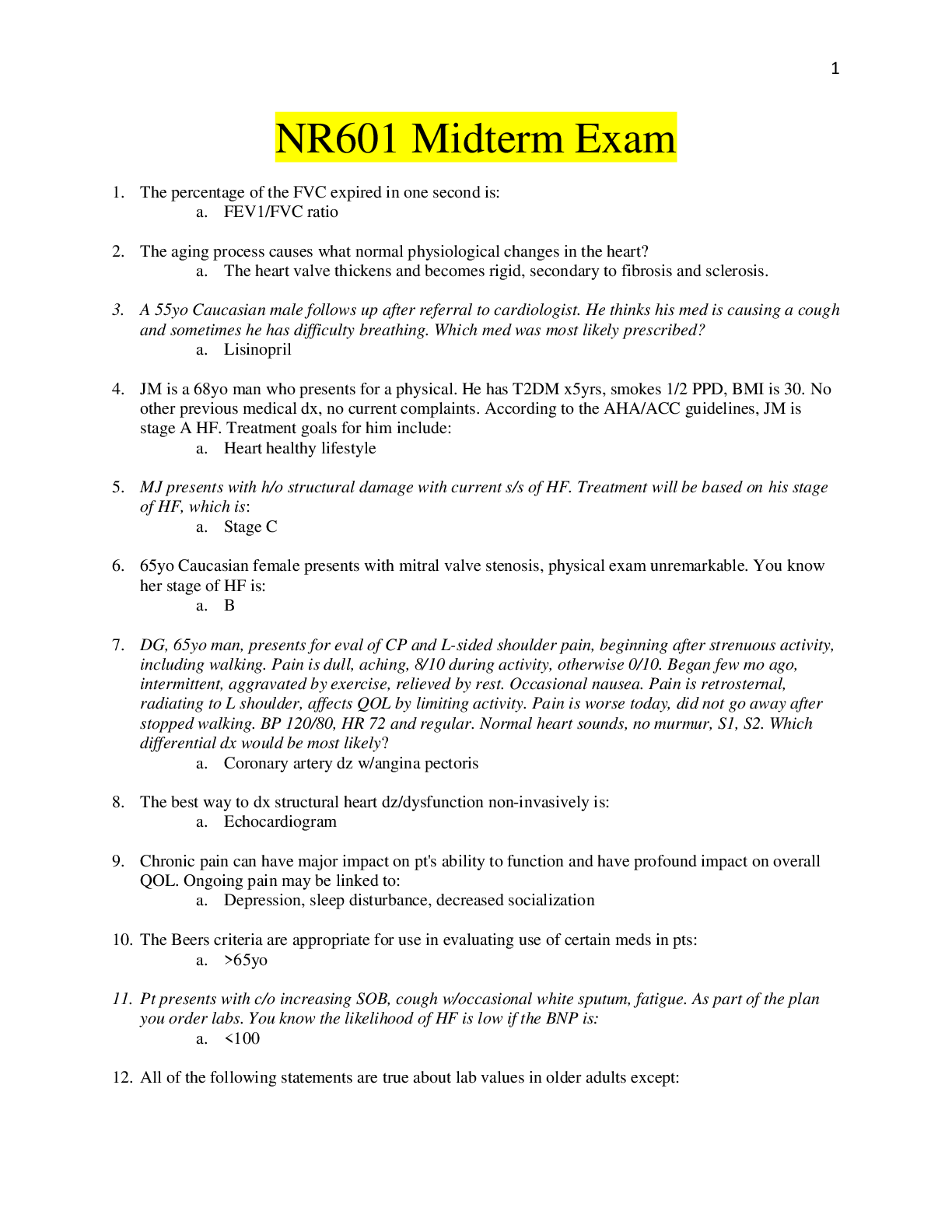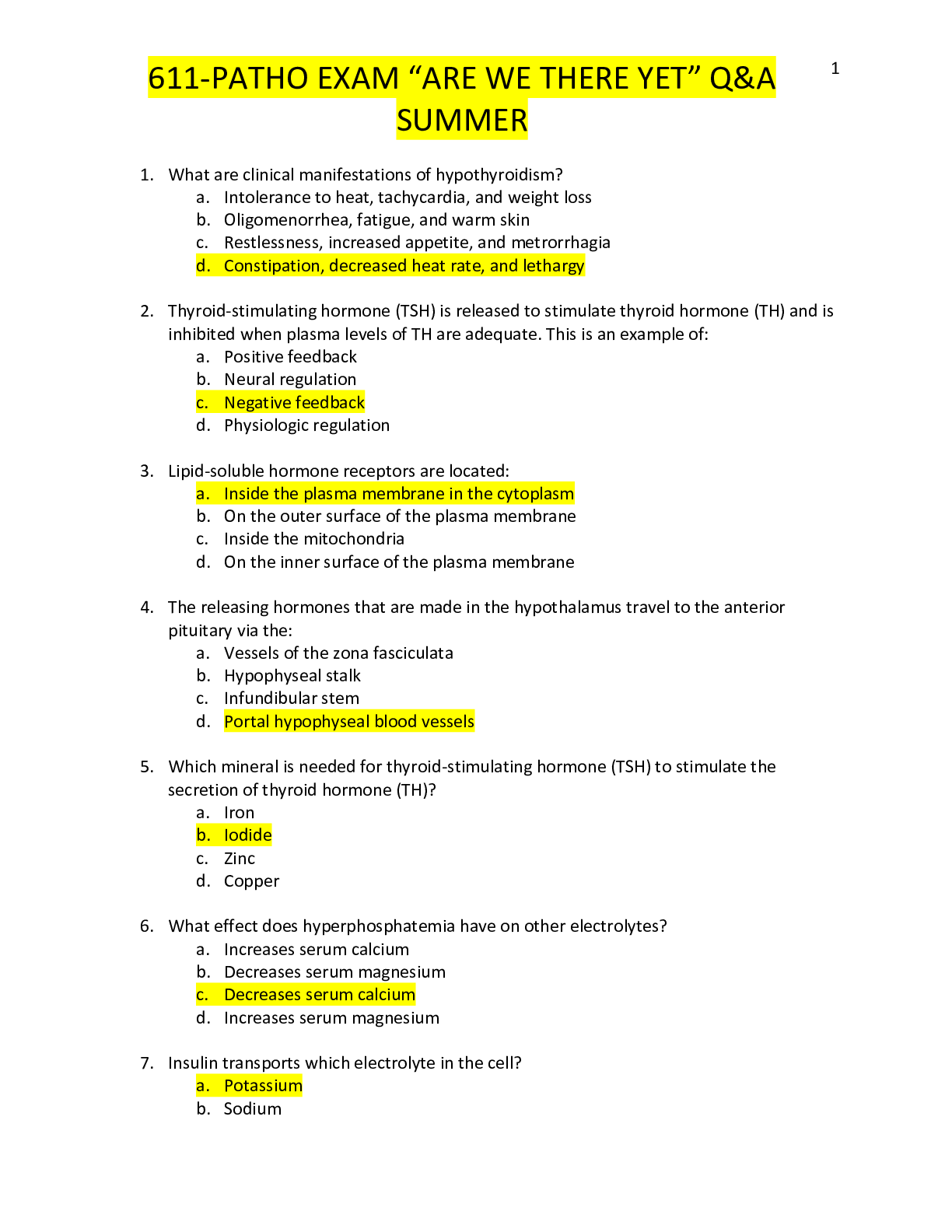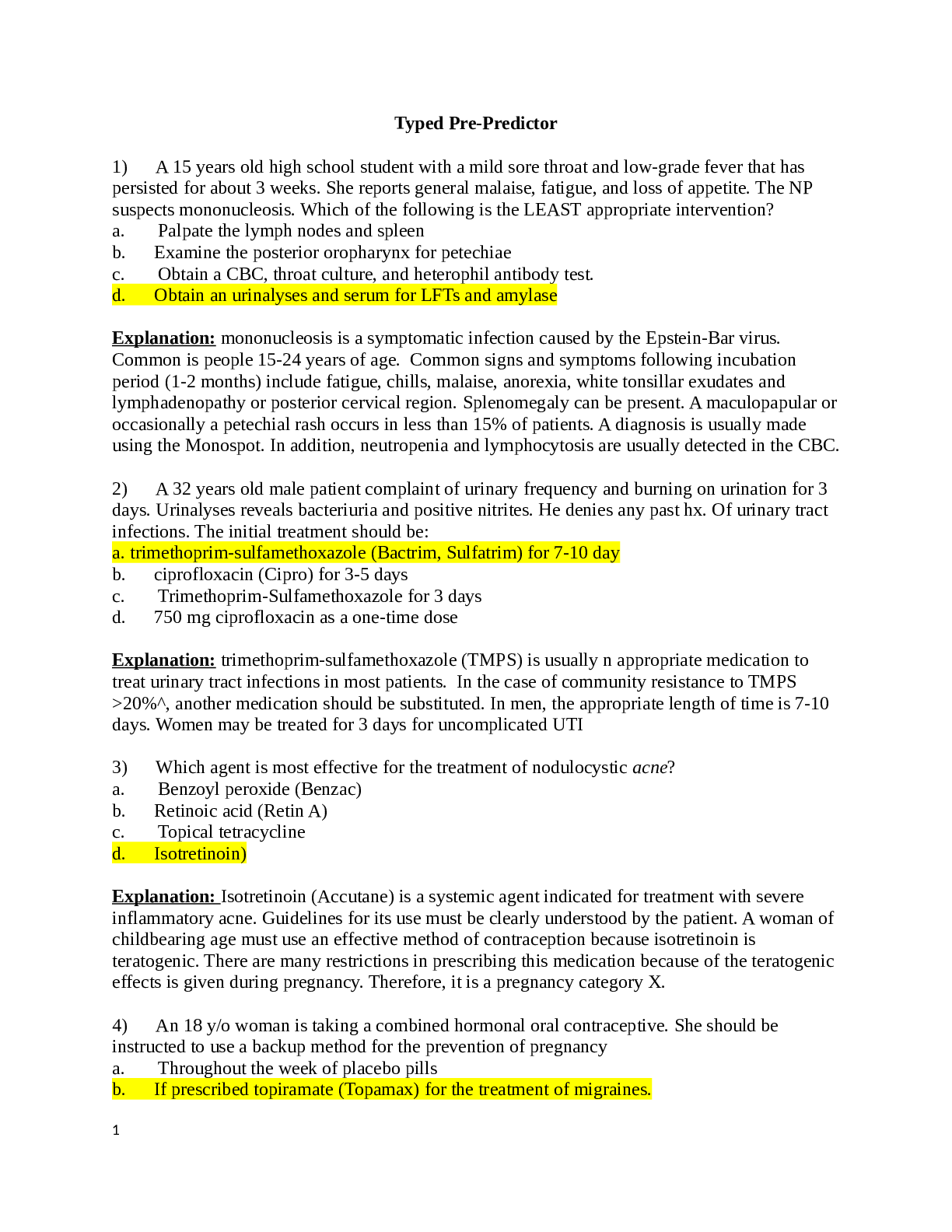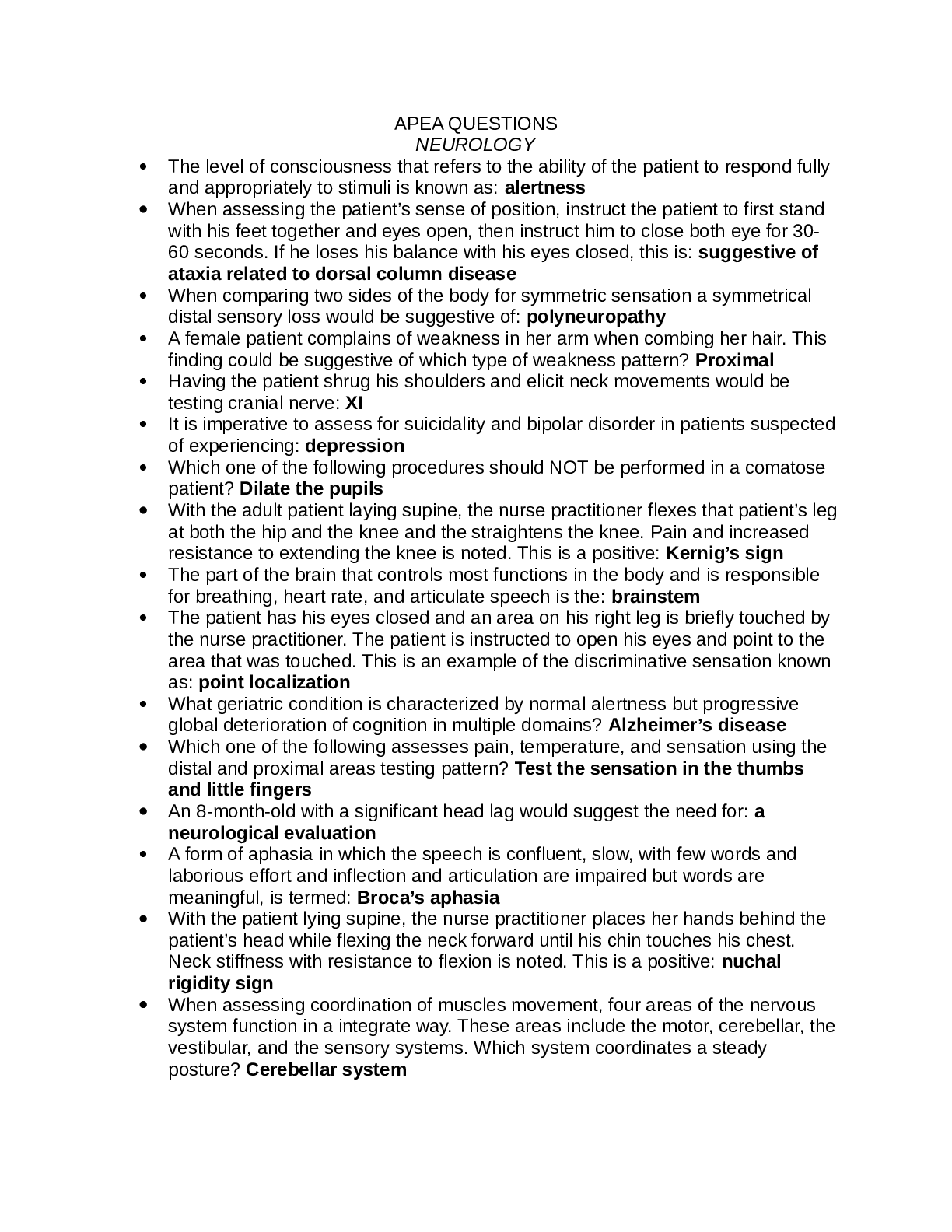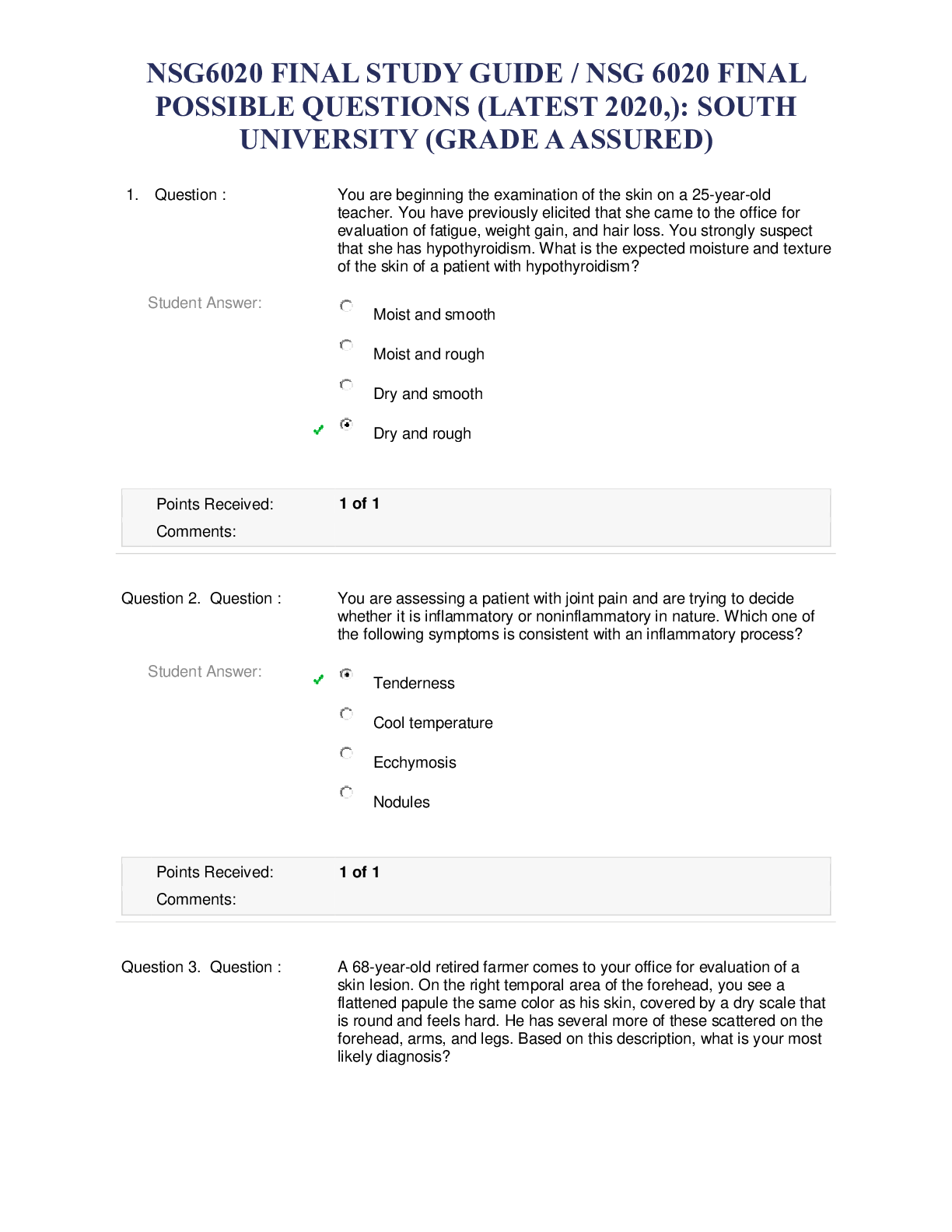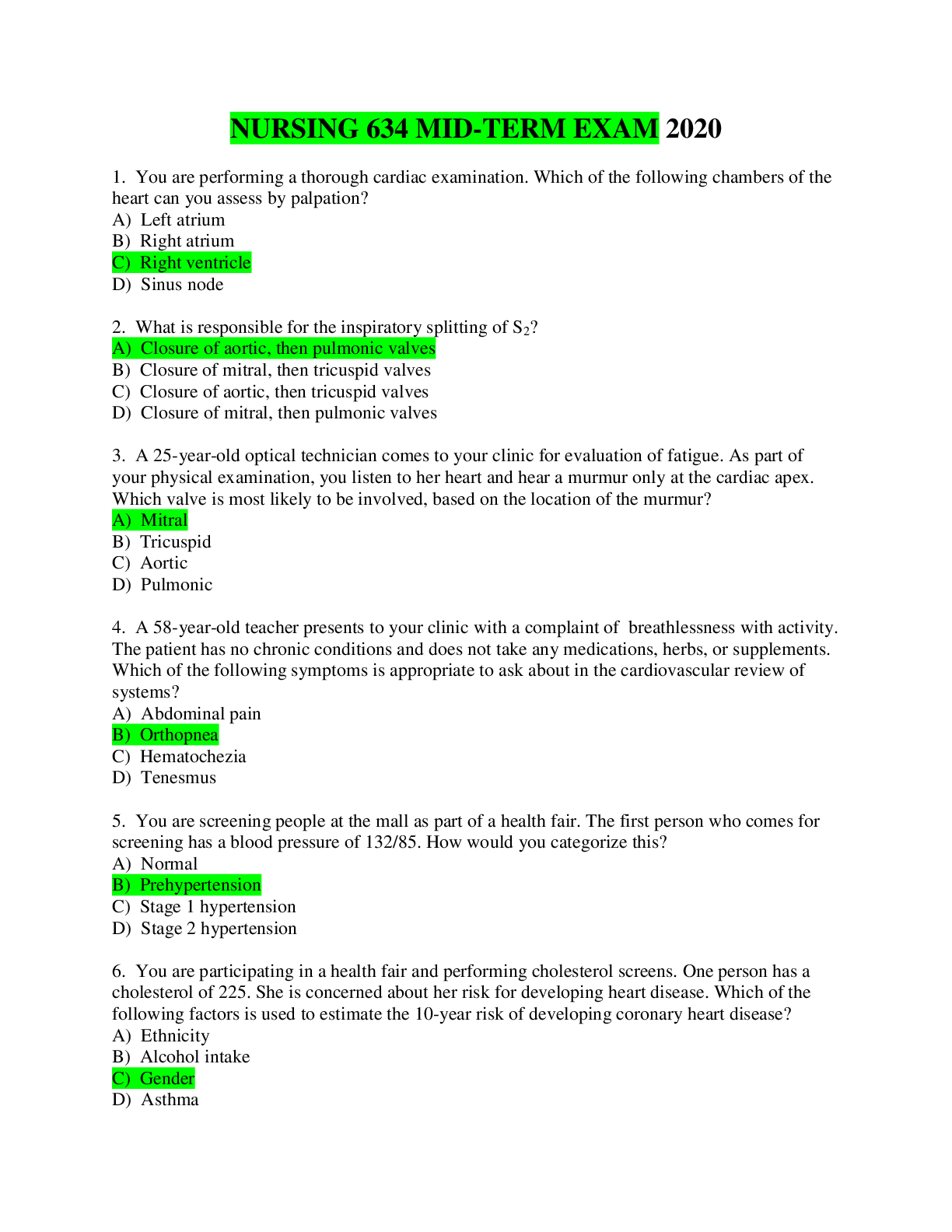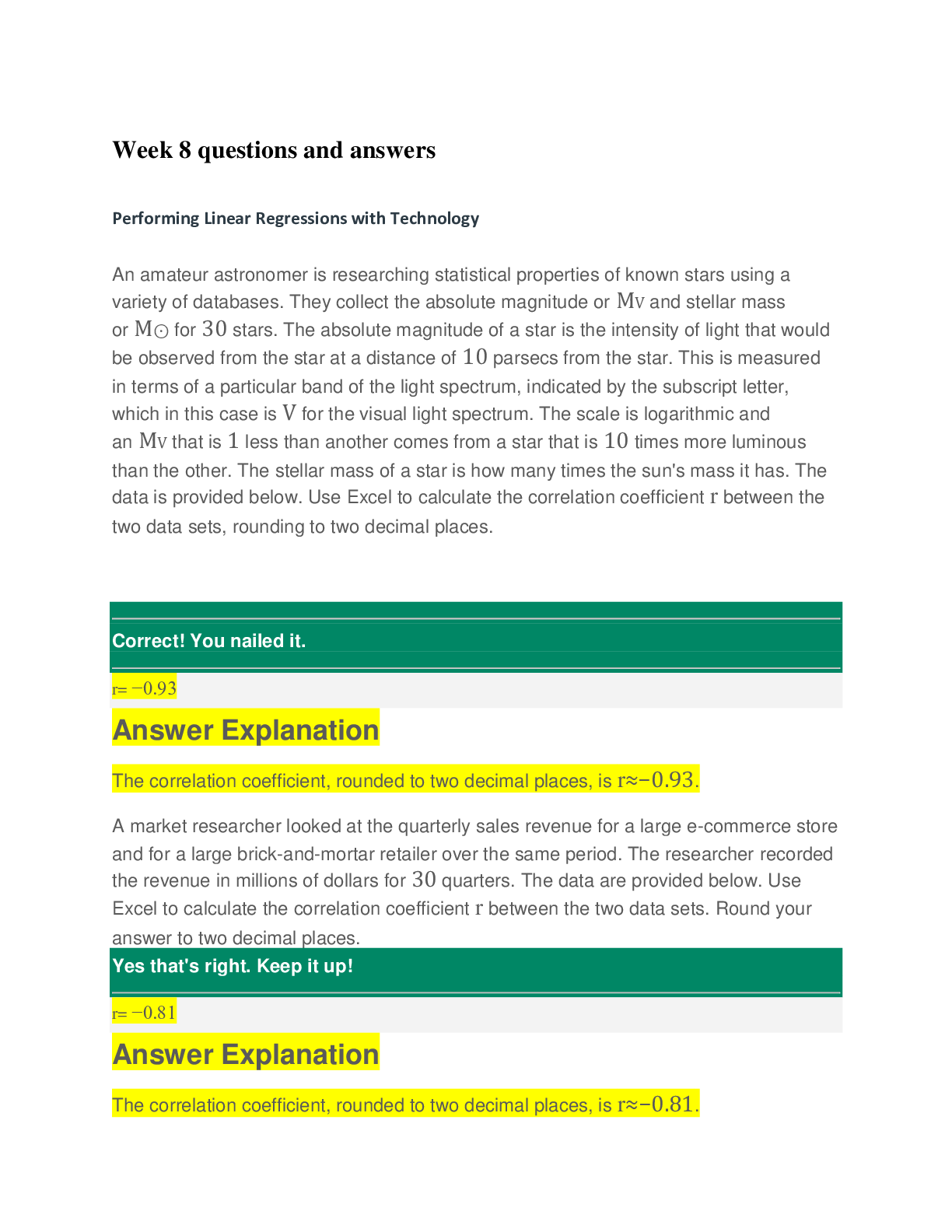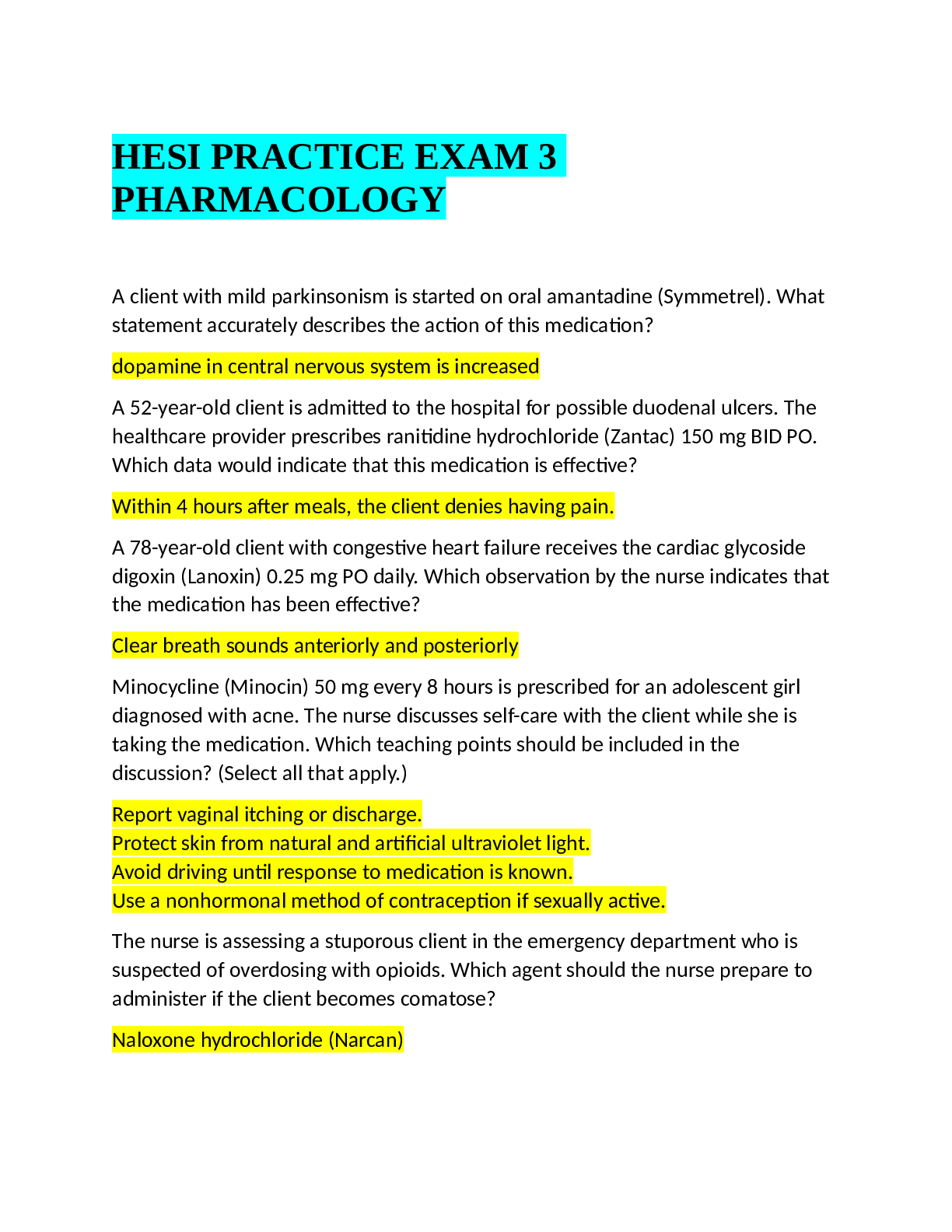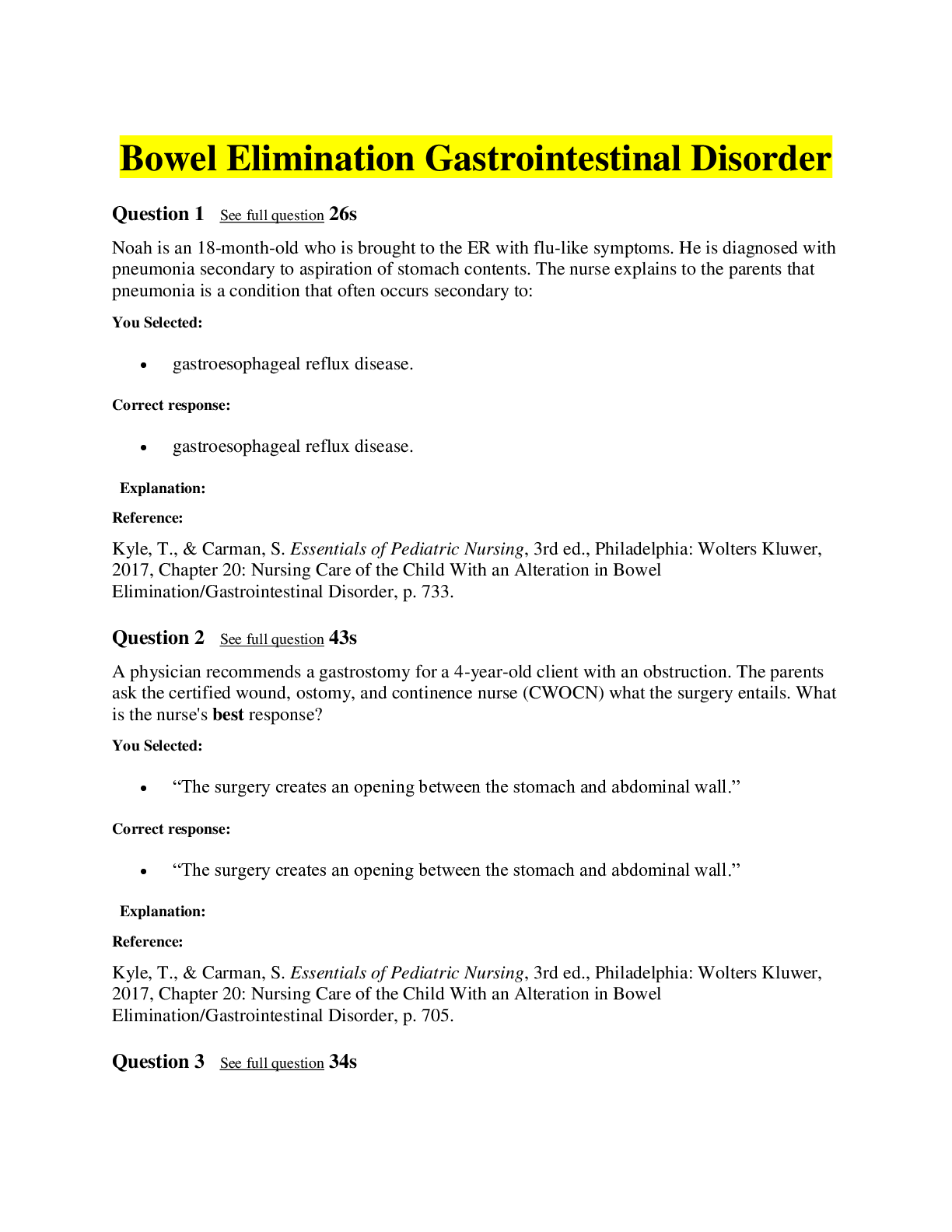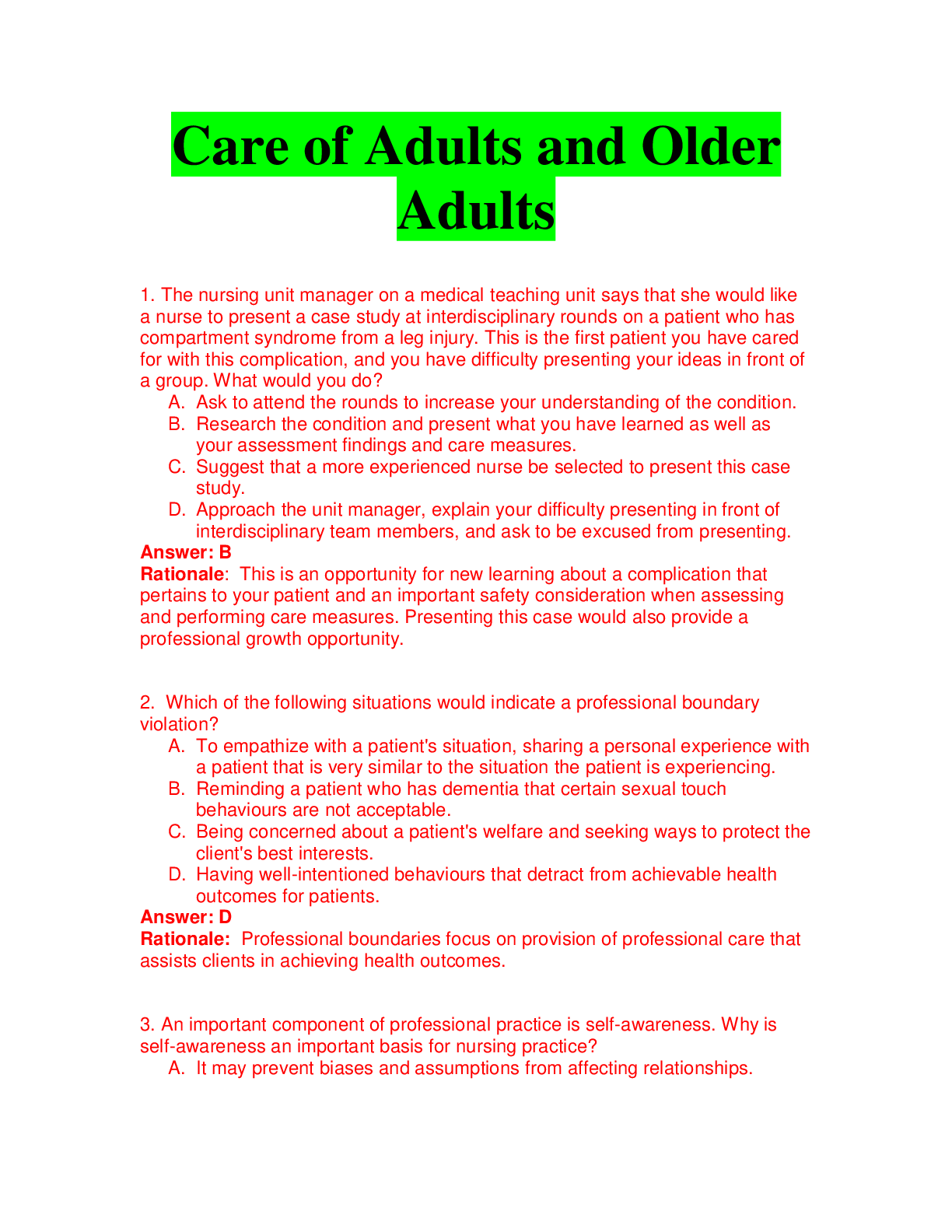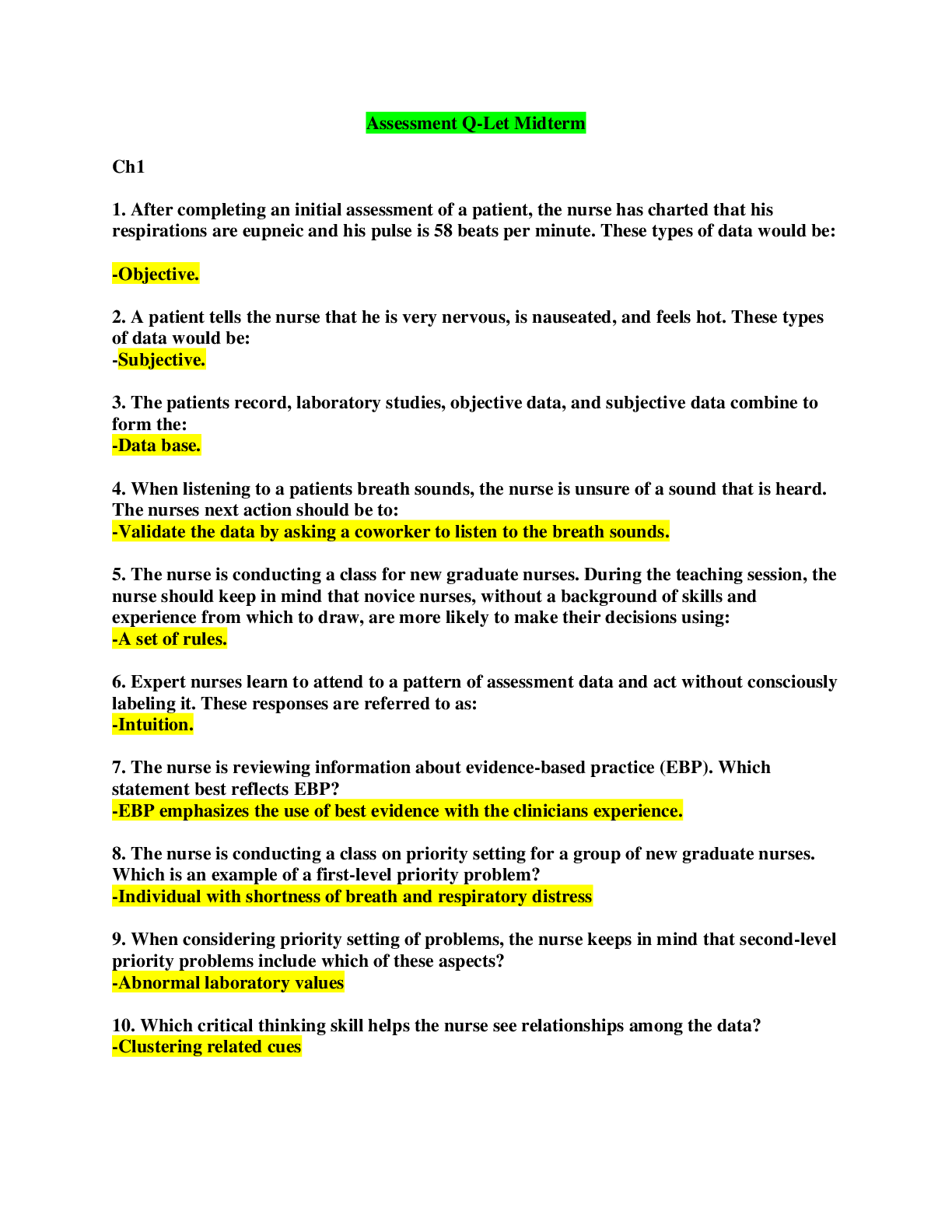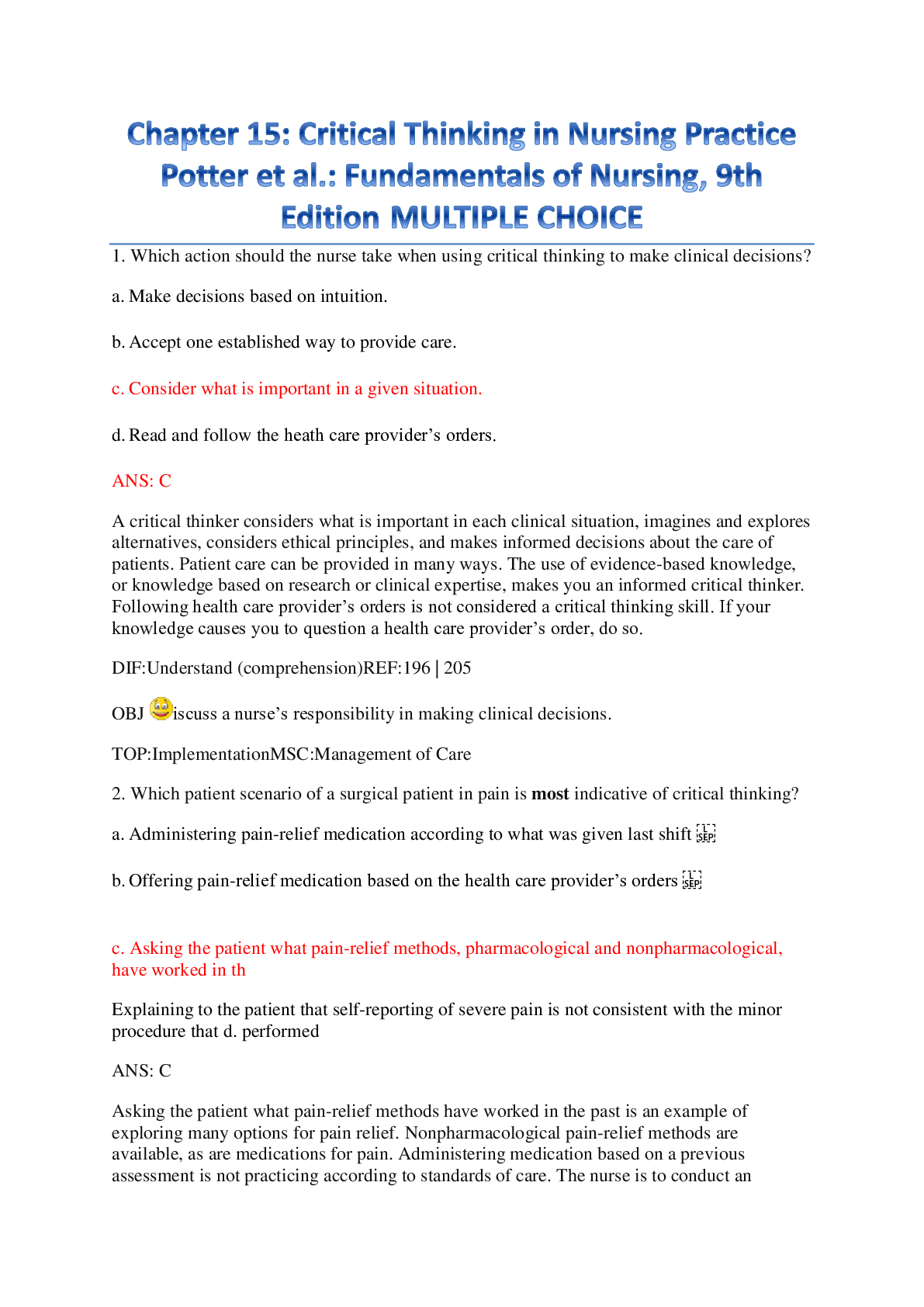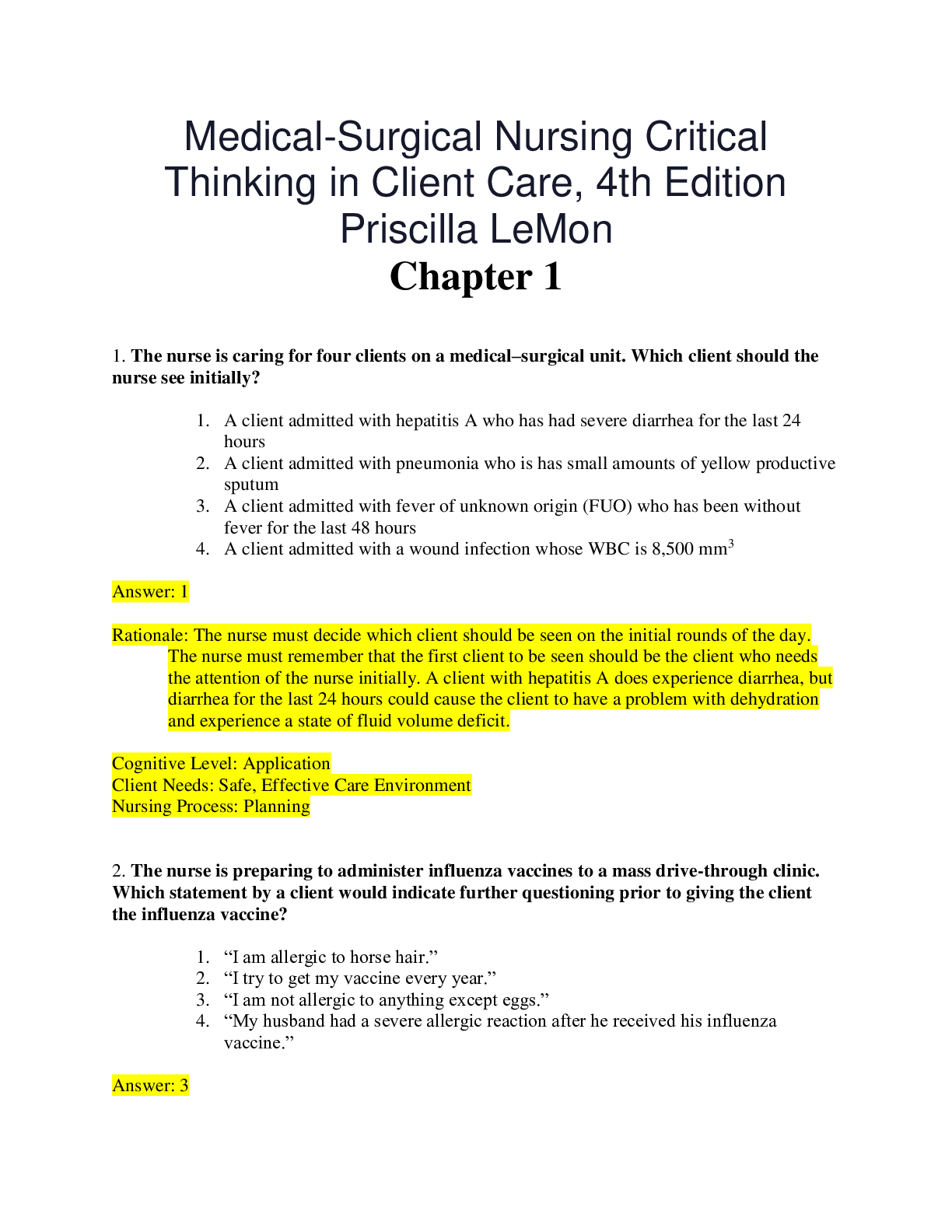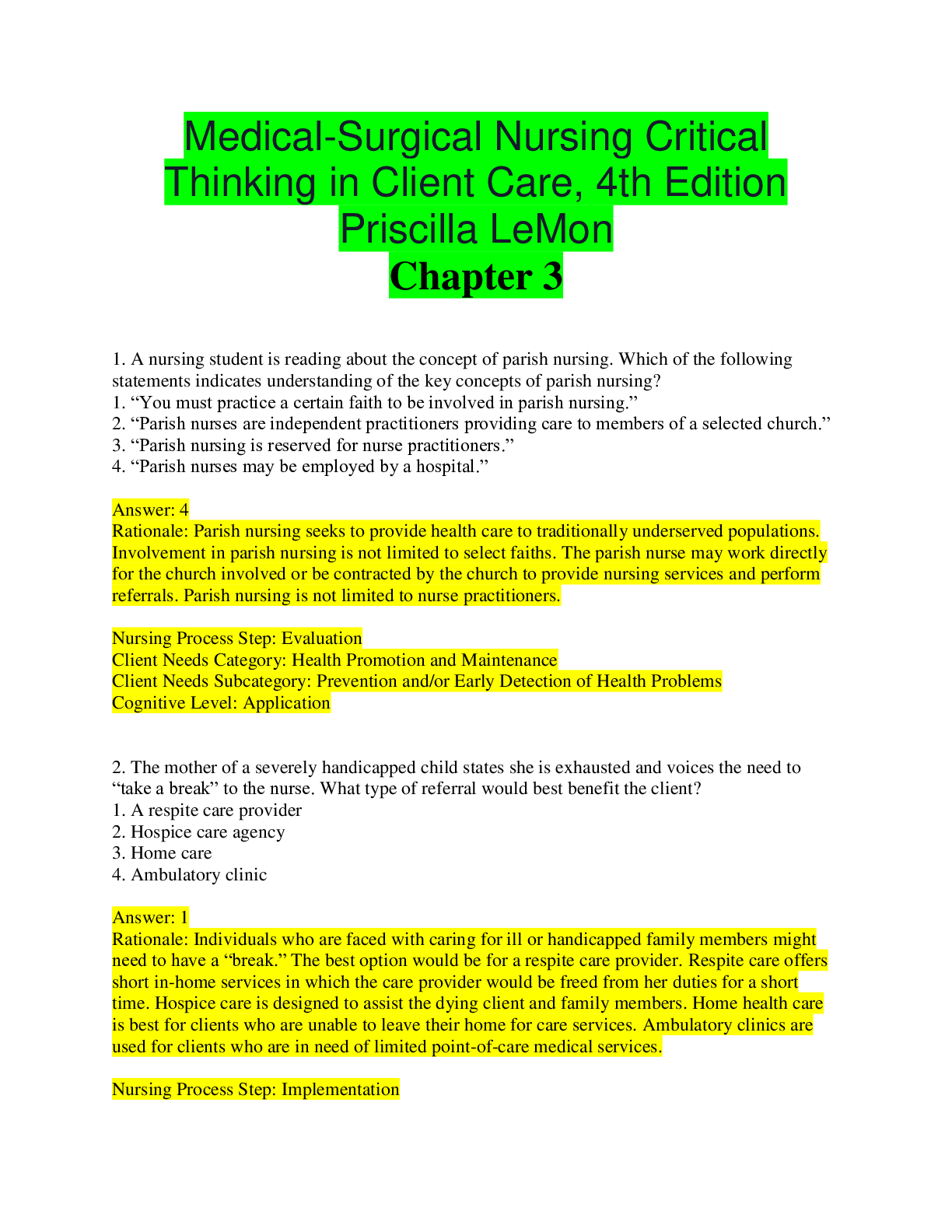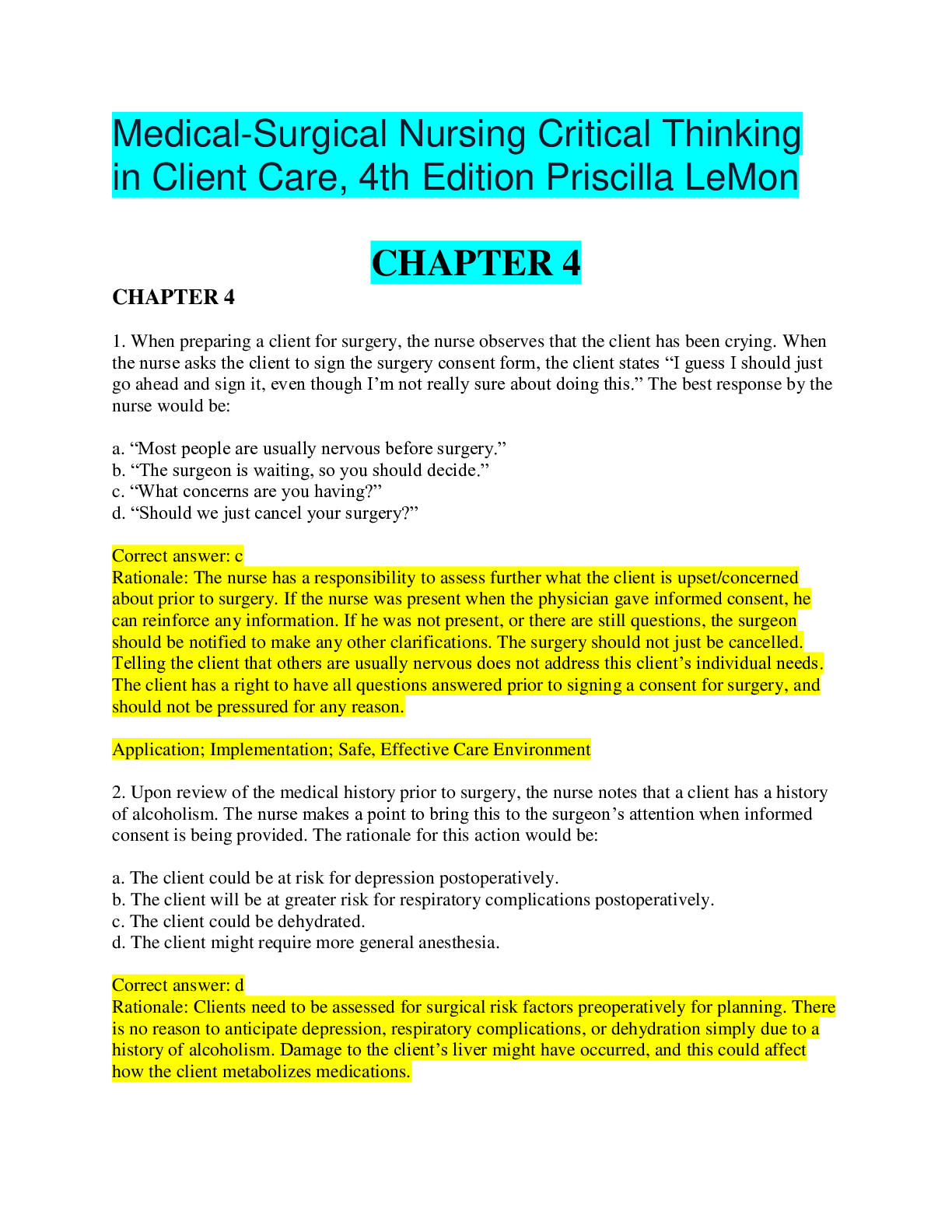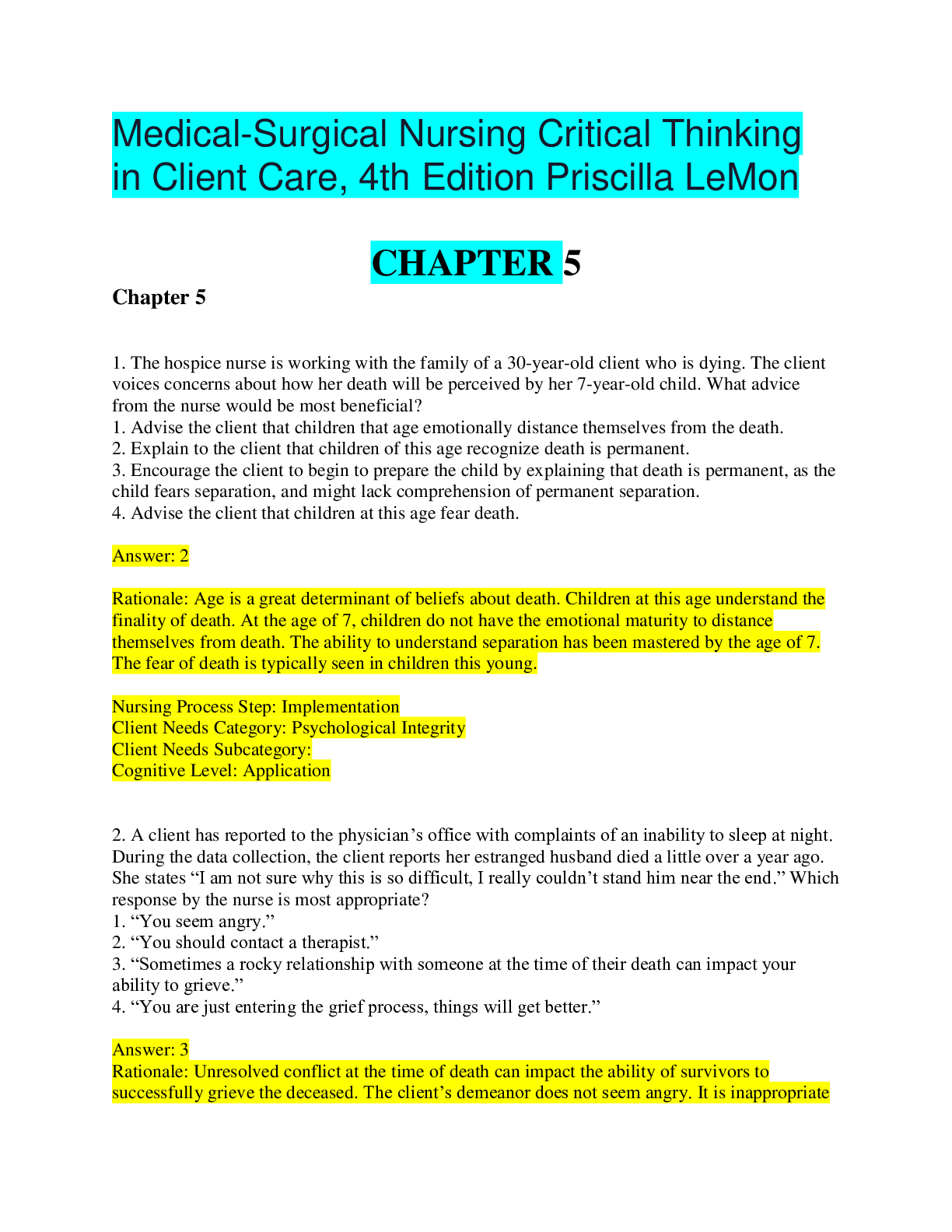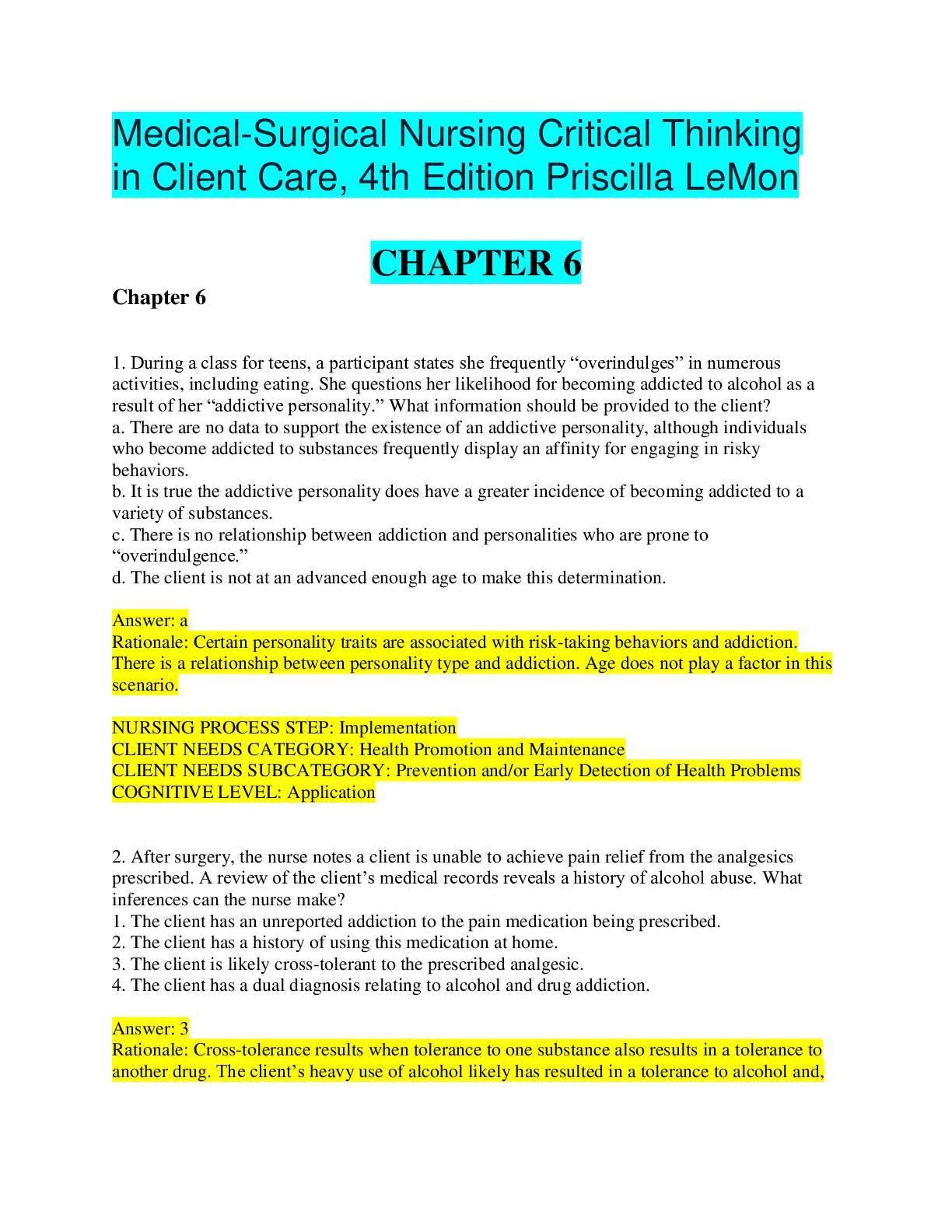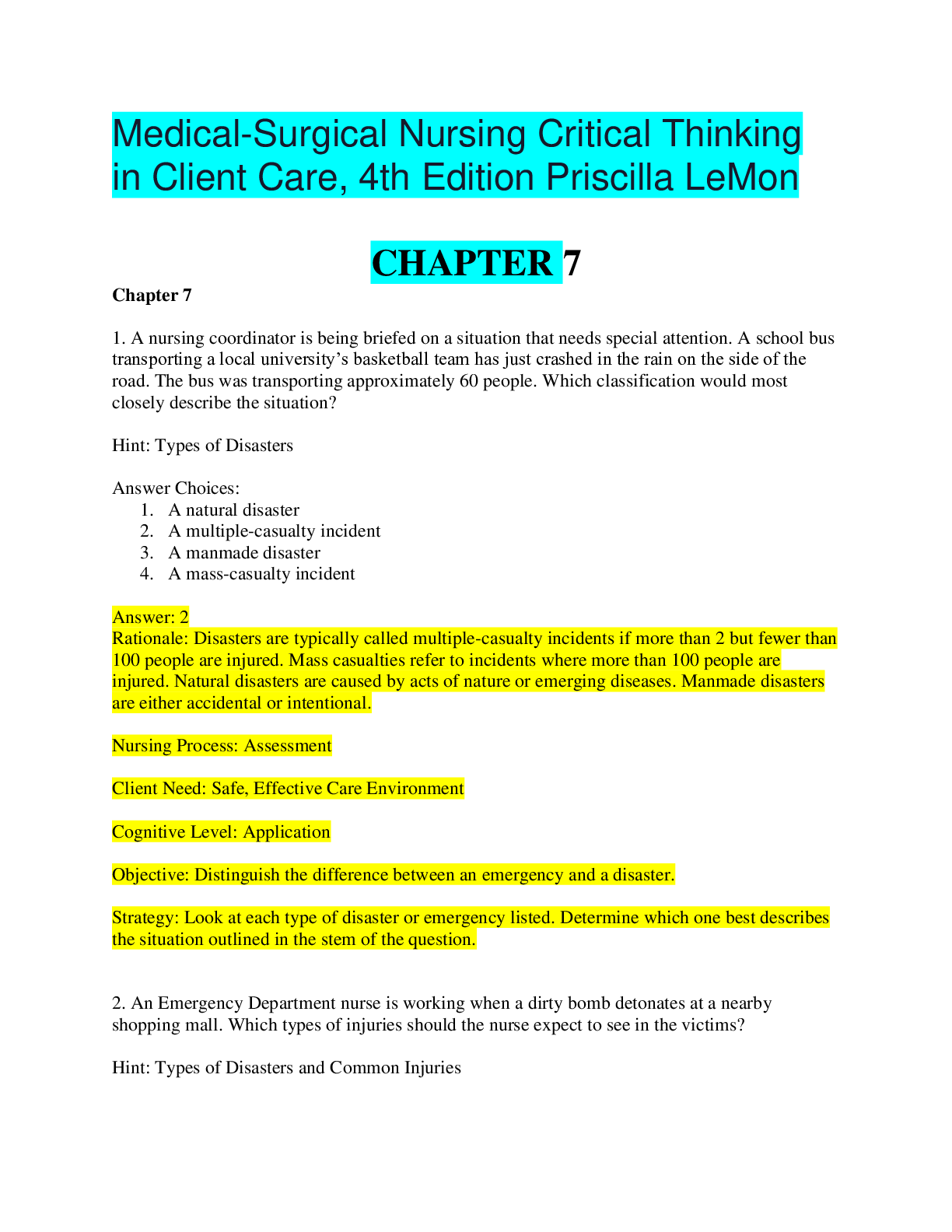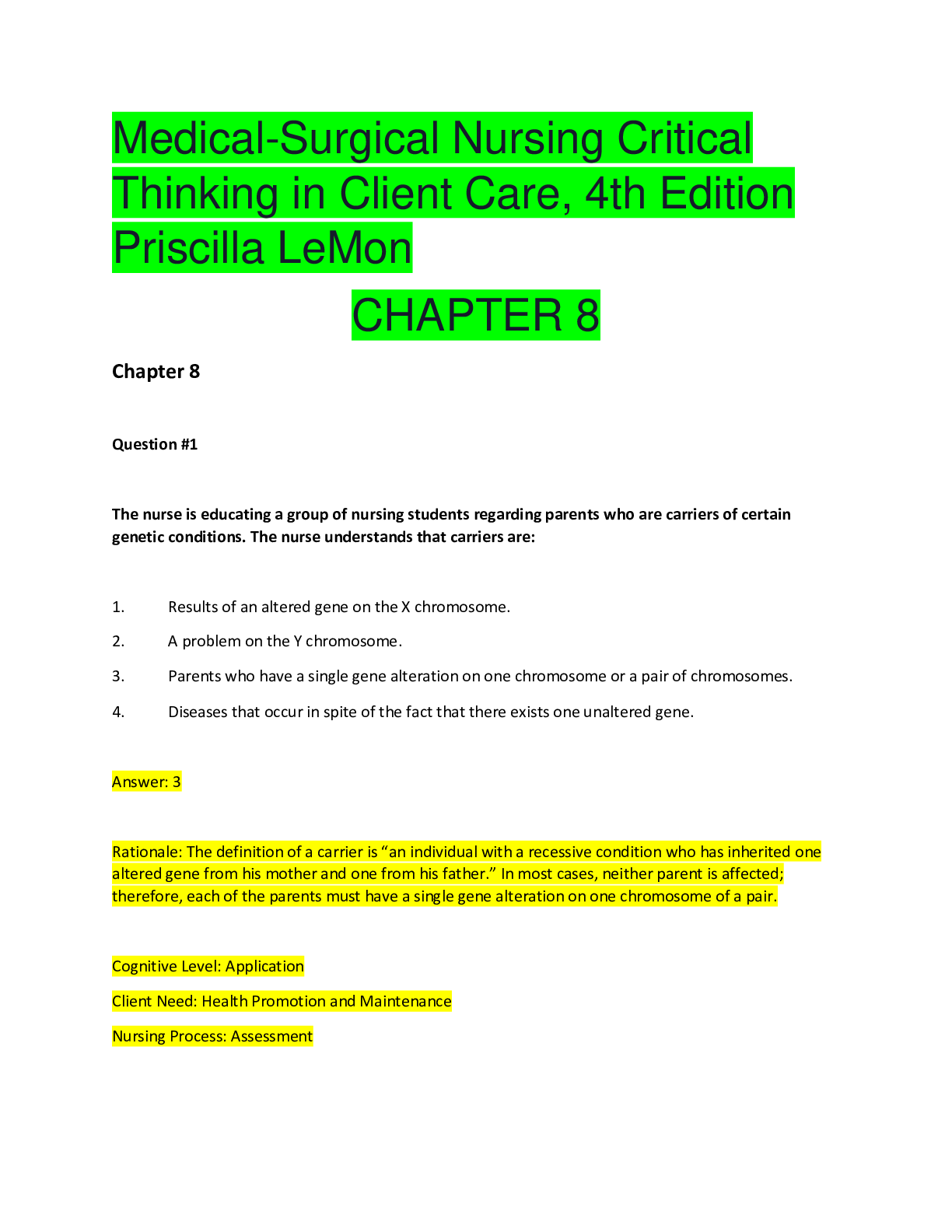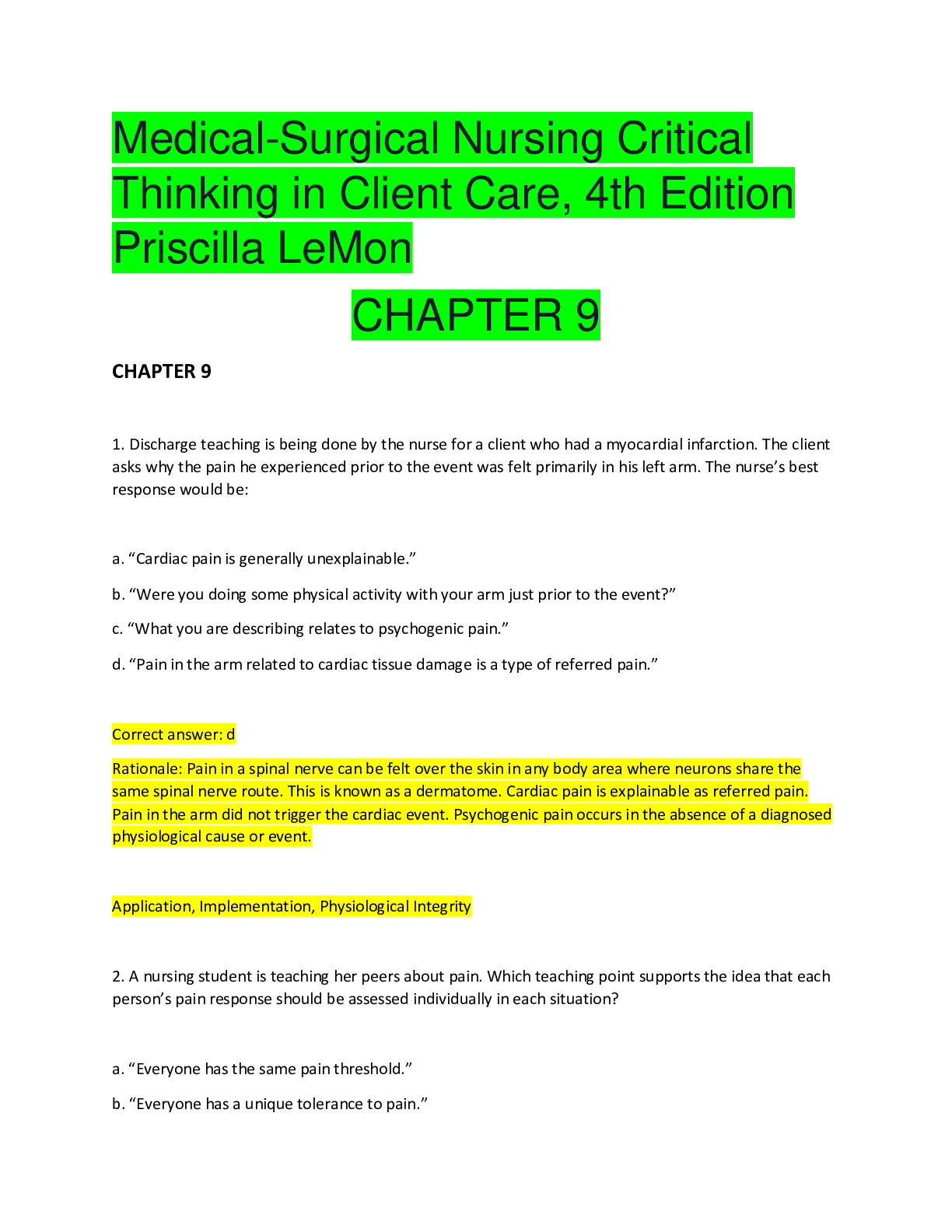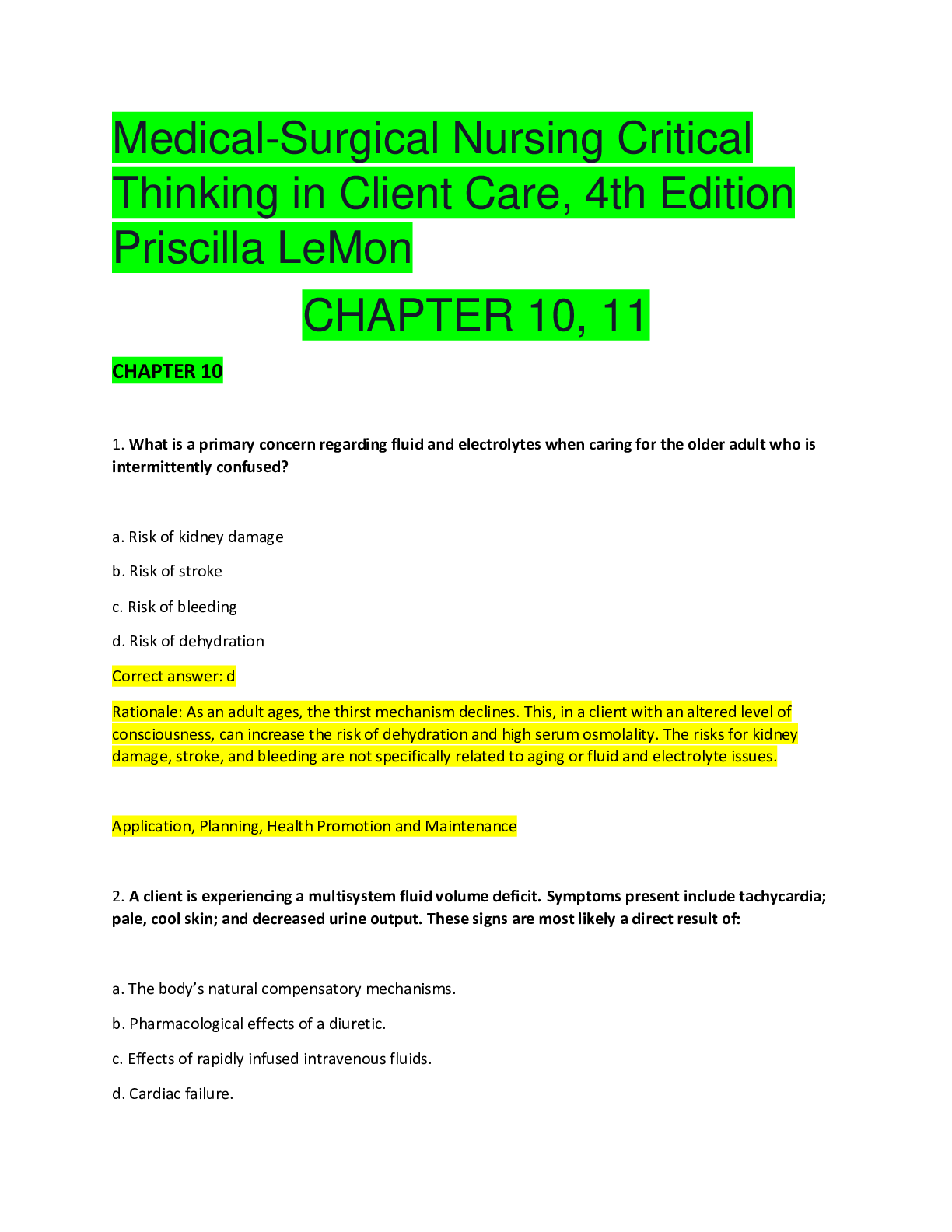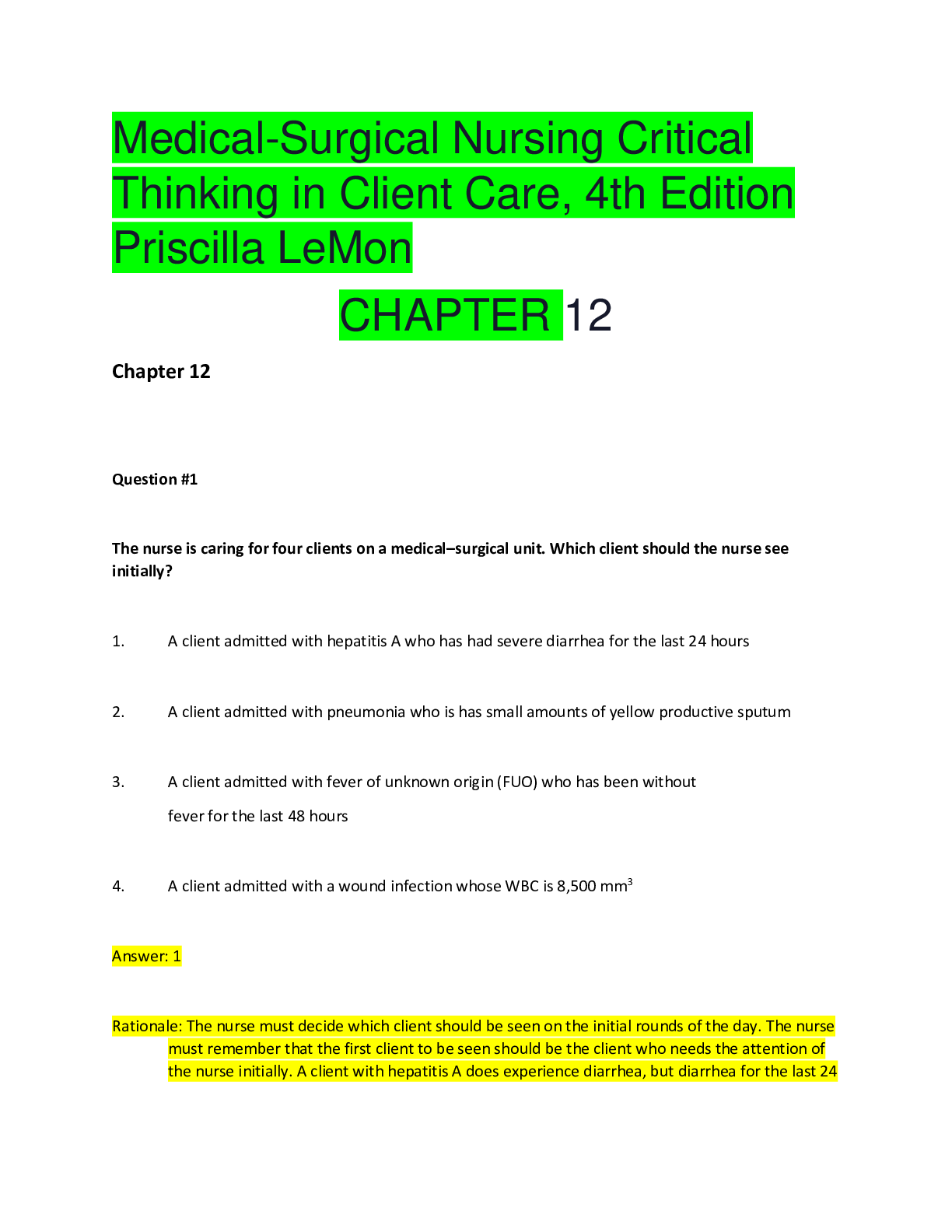Biology > QUESTIONS & ANSWERS > Fresno City College > BIO 102 > BIOLOGY 102. Medical-Surgical Nursing Critical Thinking in Client Ca (All)
Fresno City College > BIO 102 > BIOLOGY 102. Medical-Surgical Nursing Critical Thinking in Client Care, 4th Edition Priscilla LeMon Chapter 2 (ALL CORRECT ANSWERS AND RATIONALE)
Document Content and Description Below
Medical-Surgical Nursing Critical Thinking in Client Care, 4th Edition Priscilla LeMon Chapter 2 Chapter 2 1. When collecting data at the immunization clinic, which of the following disclosures b... y the client would cause the nurse to hold administration of the varicella vaccine? a. History of an allergic reaction to yeast bread b. Itching and swelling on the face and hands after ingesting eggs c. A low grade temperature within the past two days d. A blood transfusion after undergoing surgery three months ago 2. The nurse is planning an in-service to discuss primary levels of disease prevention. Which of the following topics should be included in this presentation? a. A discussion concerning the use of available community rehabilitation facilities b. Available locations for diabetes screening c. The need for annual colonoscopy examinations d. The elimination of smoking and alcohol use 3. A 45-year-old client voices concerns about gaining 12 pounds over the past two years. The client reports no change in dietary habits. Which response by the nurse is most appropriate? a. “Age-related changes in metabolism can result in weight gain despite consistent dietary intake.” b. “Are you exercising?” c. “You might be eating more than you think.” d. “You are getting older.” 4. The nurse is assisting an 18-year-old female client to plan a healthy diet to support recent weight loss. Which of the following should be included in the dietary plan? Select all that apply. a. 200 mg folic acid are recommend in the daily diet. b. Eat at least six servings of grains. c. To avoid constipation, keep daily iron intake below 21 mg. d. Fat intake should be limited to less than 30% of the daily caloric intake. 5. During a routine physical examination for a 52-year-old Caucasian male, the client declines to have his prostate gland examined. He states he does not have a family history and does not feel he is at risk. What initial response by the nurse is most appropriate? a. “You may refuse any screening test you wish.” b. “I will need to tell the physician about your refusal.” c. “Your risk factors increase with aging.” d. “You are right, Caucasian men have less incidence of prostate cancer.” 6. The nurse is preparing to teach a class for a group of new parents. The nurse is attempting to determine what topic would be of the greatest interest to the audience. What selection would be most appropriate? a. Safety b. Chronic illness prevention c. Problem-solving skills d. Interventions to manage depression 7. An African-American male is discussing his dietary intake with the nurse. The nurse encourages the client to keep sodium intake below 1,500 mg per day. The client reports he does not have any known risk for the development of hypertension and feels this is too restrictive. How should the nurse respond? a. “African-Americans typically have higher sodium levels than their Caucasian counterparts.” b. “This is the amount of sodium intake recommended for everyone.” c. “This is what will be best for you.” d. “Do you eat a great deal of salt?” 8. A 45-year-old woman presents to the ambulatory clinic for a gynecological examination. The health history reveals no significant personal or family medical history. What information concerning health-promotion behaviors should be presented to the client? a. It is time to begin having mammograms every other year. b. If the client is in a monogamous relationship, Pap smears will not be needed. c. Bone density examinations are indicated every year. d. Recommended calcium intake is at least 1,200 mg per day. 9. A 75-year-old client seeks care at an ambulatory clinic. The client reports having experienced extreme drowsiness after recently taking dosages of an over-the-counter cold medication. When collecting data, the nurse notes the client reports taking only the prescribed amount of the preparation. What inferences can be made by the nurse concerning the events? a. The client likely has taken more of the preparation than stated. b. The client likely has experienced a reaction between the cold medication and other routine medications. c. The client’s age has influenced his response to the medication. d. The client is allergic to the cold medication. [Show More]
Last updated: 1 year ago
Preview 1 out of 5 pages
Instant download
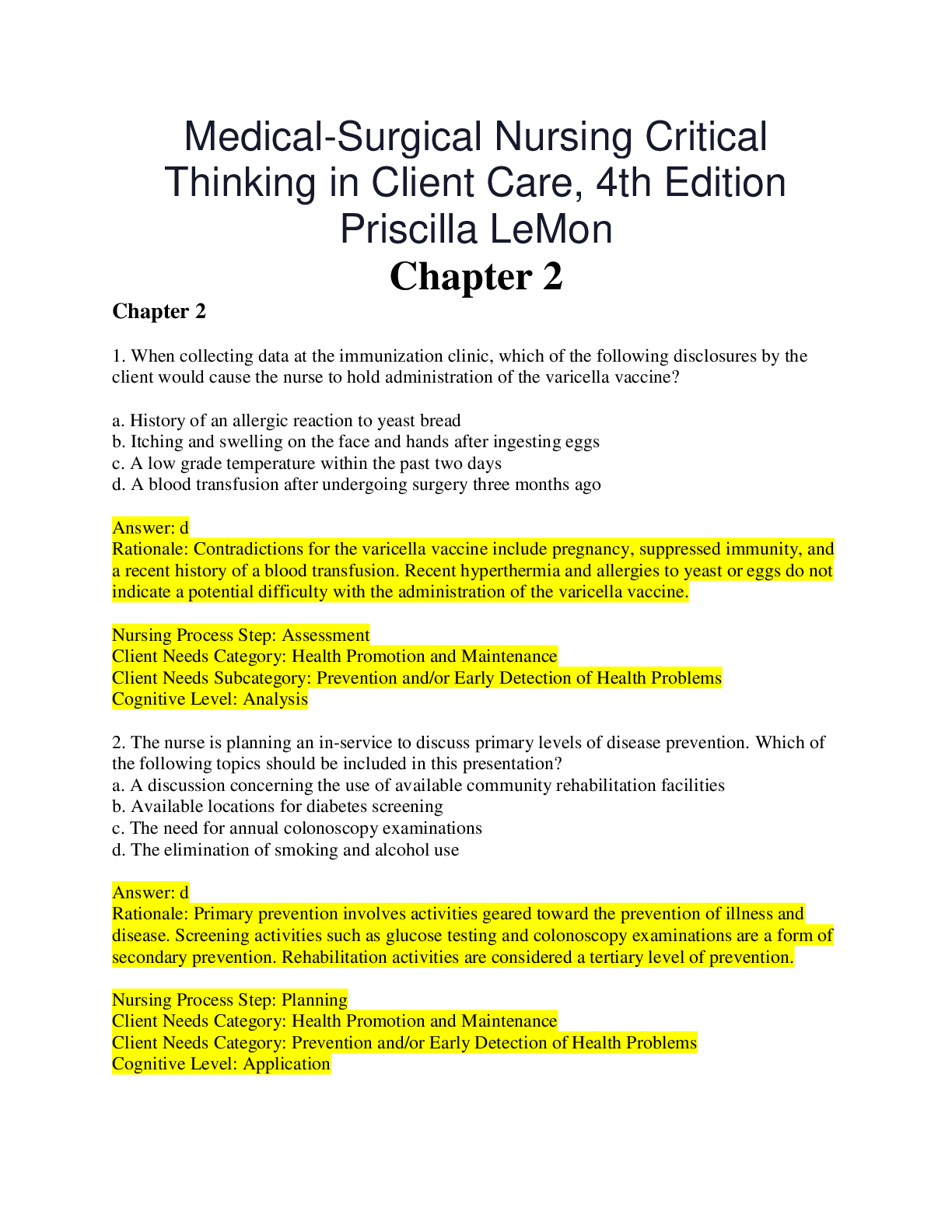
Buy this document to get the full access instantly
Instant Download Access after purchase
Add to cartInstant download
Reviews( 0 )
Document information
Connected school, study & course
About the document
Uploaded On
Apr 12, 2020
Number of pages
5
Written in
Additional information
This document has been written for:
Uploaded
Apr 12, 2020
Downloads
0
Views
35

